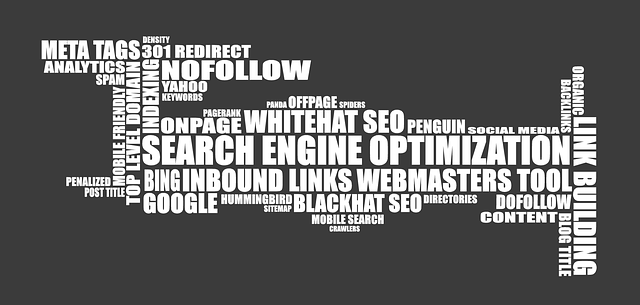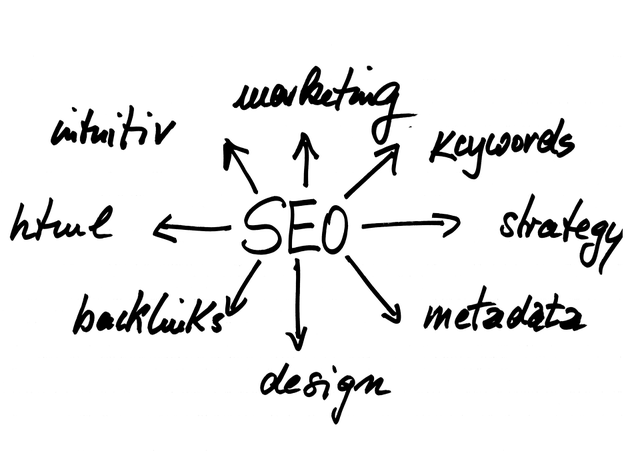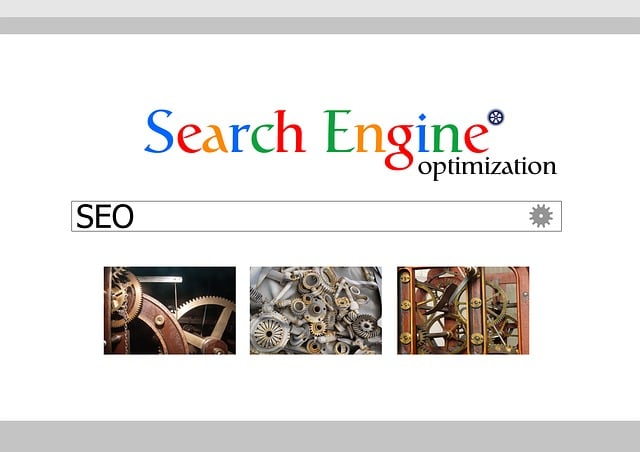Search Engine Optimization (SEO) is a strategic process that boosts website visibility and rankings on search engines like Google, Bing, or Yahoo. It offers significant benefits including increased digital visibility, more organic traffic due to higher search engine results page (SERP) rankings, and better engagement with the target audience through tailored content optimized with relevant keywords.
Effective SEO practices are crucial in today's digital era for online success. Strategic keyword placement enhances website performance by aligning content with user search queries. On-page SEO techniques like keyword research and optimization improve traffic and user engagement, while off-page strategies such as building quality backlinks and managing online reputation positively impact search rankings.
Technical SEO optimizes site structure for search engine crawling, mobile-friendliness, and structured data markup to attract more organic traffic. Measuring success through KPIs provides insights into the effectiveness of SEO strategies, guiding improvements. Staying current with evolving search engine algorithms is essential for maintaining a competitive online presence.
SEO is a strategic investment leading to long-term business success by driving organic traffic, enhancing brand awareness, and increasing market share, ultimately resulting in more sales and improved customer engagement.
In today’s digital landscape, understanding Search Engine Optimization (SEO) is paramount for any business aiming to enhance its online visibility. This article delves into the multifaceted world of SEO, exploring its profound benefits in driving organic traffic and fostering business growth. From unraveling the power of keywords to mastering on-page and off-page strategies, each section reveals crucial tactics to optimize your digital presence. Discover how technical SEO, performance metrics, and algorithm adaptations play a pivotal role in achieving long-term success in the competitive online arena.
Understanding Search Engine Optimization (SEO) and its Role in Digital Visibility

Search Engine Optimization (SEO) is a strategic process designed to enhance a website’s visibility and ranking on search engines like Google, Bing, or Yahoo. It involves a range of techniques and practices that aim to make a website more relevant, valuable, and accessible to its target audience. By understanding user search behavior and optimizing websites accordingly, SEO offers numerous benefits for businesses and individuals alike. One of the primary advantages is increased digital visibility; when a site ranks higher on search engine results pages (SERPs), it gains greater exposure to potential customers or readers.
This heightened visibility leads to more organic traffic, as users are naturally drawn to top-ranking sites that seem most relevant to their queries. SEO also enables better target audience engagement by ensuring that the right content reaches the right people. By optimizing content with relevant keywords and phrases, search engines can accurately match user searches with the most suitable websites, fostering a stronger connection between publishers and their desired demographic. Ultimately, effective SEO practices are key to thriving in today’s digital landscape, where online visibility and accessibility determine success for many businesses and content creators.
The Power of Keywords: Unlocking the Potential of Relevant Terms

The power of keywords lies in their ability to connect users with relevant content, a core principle of search engine optimization (SEO). By strategically incorporating relevant terms into your online content, you unlock several benefits that enhance your website’s visibility and performance. Search engines use these keywords to understand the context and intent behind user queries, directing traffic towards pages that offer the most accurate and valuable information.
This targeted approach not only improves a site’s ranking in search results but also increases the likelihood of converting visitors into customers or followers. Relevant keywords can guide users through their customer journey, from initial awareness to final purchase decisions, ensuring your content is discovered at every stage. Thus, optimizing for these terms is a fundamental step in maximizing the benefits of SEO and achieving better search engine performance.
On-Page SEO Tactics: Optimizing Your Website's Content and Structure

On-Page SEO is a crucial aspect of improving your website’s visibility and ranking on search engines. It involves optimizing various elements within your site to make it more relevant and appealing to both users and search algorithms. One of the key tactics is keyword research, where you identify the terms and phrases your target audience uses when searching for products or services related to your business. Incorporating these keywords naturally into your website’s content brings significant benefits of Search Engine Optimization (SEO), such as increased organic traffic and improved click-through rates.
Additionally, optimizing your website’s structure is essential. This includes creating a logical hierarchy through effective heading tags, ensuring proper internal linking, and enhancing meta descriptions. Well-structured content not only helps search engines understand your pages better but also enhances the user experience, encouraging visitors to explore more of your site. By combining strategic keyword usage with an intuitive site structure, you can significantly boost your search engine performance and drive relevant traffic to your website.
Off-Page SEO Strategies: Building Quality Backlinks and Online Reputation

Off-page SEO focuses on strategies outside your website to improve search engine rankings. One key component is building quality backlinks, which are incoming links from other reputable websites. These act as votes of confidence in your site’s authority and relevance, signaling to search engines that your content is valuable and trustworthy. Earning these backlinks through high-quality guest blogging, insightful sharing, or creating shareable assets can significantly enhance the benefits of Search Engine Optimization (SEO).
Online reputation also plays a crucial role in off-page SEO. Positive reviews, mentions, and overall brand sentiment positively impact your search rankings. Encouraging satisfied customers to leave reviews, engaging with your audience on social media, and managing online listings help build a strong online reputation. This, in turn, increases visibility, attracts more organic traffic, and further bolsters your site’s position in search engine results, reaping the benefits of SEO efforts.
Technical SEO for Seamless User Experience and Search Engine Crawling

Technical SEO plays a pivotal role in ensuring your website offers a seamless user experience and facilitates smooth search engine crawling. When your site’s structure is optimized, search engines can easily navigate through pages, indexing them efficiently. This means that relevant content becomes more discoverable, leading to improved search rankings and increased organic traffic. For instance, implementing structured data markup helps search engines understand the context of your content, enabling them to display rich snippets in search results—a feature that enhances user engagement and drives clicks.
Moreover, optimizing for mobile-friendliness is crucial. With the majority of internet users accessing websites via mobile devices, a responsive design guarantees your site adapts gracefully to different screens, providing a consistent experience across all platforms. This not only benefits SEO but also ensures your audience enjoys easy access to your content and services, fostering higher conversion rates and better user retention.
Measuring Success: Key Performance Indicators (KPIs) in SEO Analytics

Measuring success is a vital aspect of SEO, as it helps businesses understand the benefits of search engine optimization and make data-driven decisions. Key Performance Indicators (KPIs) in SEO analytics provide insights into the effectiveness of your strategies. These metrics go beyond simple keyword rankings to assess user engagement, conversion rates, click-through rates (CTRs), and average session durations. By tracking these KPIs, you can gauge how well your website is performing in search engine results pages (SERPs) and identify areas for improvement.
For instance, an increase in organic traffic, lower bounce rates, and higher page view per session indicate that your SEO efforts are positively impacting user experience and interest. These positive changes translate to better search engine performance and improved visibility, ultimately driving more potential customers to your website. Moreover, analyzing these KPIs allows you to adapt your content strategy, optimize site speed, and refine metadata, ensuring continuous improvement in your search engine rankings and user satisfaction.
Staying Ahead of the Curve: Adapting to Evolving Search Engine Algorithms

Search engine algorithms are constantly evolving, and staying ahead of the curve is crucial for maximizing the benefits of search engine optimization (SEO). Engines like Google regularly update their ranking factors, prioritizing content quality, user experience, and relevant keywords to deliver more accurate search results. SEO professionals must adapt to these changes by keeping up with industry trends, leveraging advanced analytics tools, and refining strategies accordingly.
By staying current, businesses can ensure their online presence remains competitive. This includes optimizing web pages for mobile devices, implementing structured data markup, and creating high-quality, keyword-rich content that resonates with target audiences. Adapting to evolving algorithms not only boosts search rankings but also enhances the overall user experience, driving more organic traffic and increasing conversion rates.
The Long-Term Impact of SEO: Driving Organic Traffic and Business Growth

Search Engine Optimization (SEO) isn’t just a short-term strategy; it’s an investment in your website and business’s long-term success. The benefits extend far beyond mere visibility on search engine results pages (SERPs). By understanding user intent and optimizing content, SEO drives a steady stream of targeted organic traffic to your site. This means more potential customers discovering your products or services naturally, without costly advertising.
Over time, consistent SEO efforts can lead to significant business growth. Improved online visibility increases brand awareness and credibility, fostering trust among potential clients. As search engines reward relevant, high-quality content, a well-optimized website is more likely to rank higher, capturing a larger share of the organic search market. This sustained performance translates into increased sales, improved customer engagement, and a stronger online presence, solidifying your brand’s position in the competitive digital landscape.
